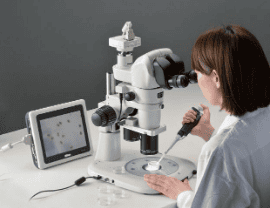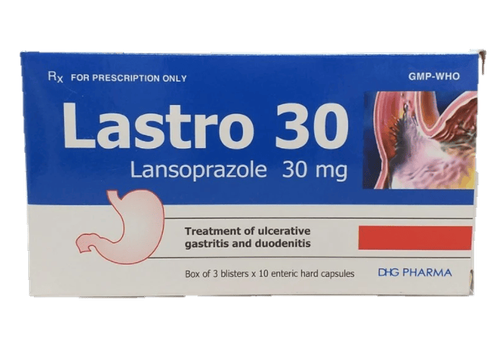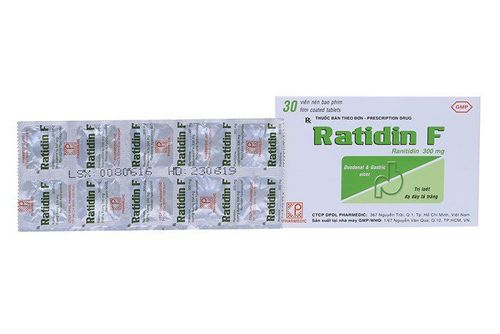This is an automatically translated article.
Posted by Master, Doctor Mai Vien Phuong - Department of Examination & Internal Medicine - Vinmec Central Park International General HospitalCrohn's disease often goes undiagnosed for a long time. Both men and women are at equal risk for Crohn's disease, and symptoms can begin at any age. However, it is most common in adolescents between the ages of 15 and 35.
Here are 11 things doctors want you to know about the disease.
1. There are flare-ups and remissions
Crohn's disease can also manifest in other ways, such as joint pain, eye inflammation and skin lesions, says Aline Charabaty, M.D., director of the Center for Inflammatory Bowel Disease at MedStar Georgetown University Hospital.However, most people with Crohn's disease have cycles of flare-ups and remissions. Gastroenteritis-related symptoms at their worst often occur during a Crohn's flare. During remission, the person usually feels quite normal.
Common symptoms of a Crohn's flare include:
Abdominal pain (often worse after meals); Diarrhea ; Painful bowel movements; Passing out blood ; Weight loss; Anemia; Tired.
2. More people are diagnosed each year
More than 700,000 Americans are diagnosed with Crohn's disease each year. According to the Crohn's & Colitis Foundation of America (CCFA), this number is continuing to grow.Both men and women are at equal risk for Crohn's disease, and its symptoms can begin at any age. However, it most commonly appears in adolescents between the ages of 15 and 35.
3. No one knows exactly what causes Crohn's
The specific cause of Crohn's disease is still unknown. However, most researchers believe that Crohn's is the result of a combination of factors, including:Genetic factors; Environmental triggers, such as medications, pollution, overuse of antibiotics, diet, and infections; The immune system begins to attack its own digestive tissue.

4. Family history of digestive diseases
If you have a family history of irritable bowel disorder, you're more likely to develop Crohn's disease. However, most people with Crohn's disease have no family history of the condition. Therefore, researchers all believe that the environment may play an important role in causing this disease.5. The cause of Crohn's disease is still unclear
"Doctors don't know what causes Crohn's disease, but one thing's for sure, people don't cause the disease themselves." - Gastroenterologist Matilda Hagan, M.D. at Mercy Medical Center in Baltimore.6. Smoking can make symptoms worse
There is a strong link between smoking and Crohn's disease. Not only does smoking make people with Crohn's disease worse and more frequent, it can even increase the likelihood of complications from the disease.Smoking has been reported to affect the overall severity of Crohn's disease, says Akram Alashari, M.D., surgeon and attending physician at the University of Florida. Statistically, smokers have a 34% higher rate of recurrence of Crohn's disease than non-smokers.
7. There are many ways to treat Crohn's disease
Crohn's disease can manifest itself in a myriad of different ways. Therefore, treatments are tailored to the specific symptoms and severity of any given patient at different times.Currently, there are many medical therapies for the treatment of Crohn's disease, including immunosuppressants, steroids, and biologics. Current studies are looking at new options for treating Crohn's disease such as manipulating gut bacteria with antibiotics, probiotics, prebiotics, and diet.
Fecal microbiota transplantation for the treatment of Crohn's disease is also being studied. However, more studies need to be done to determine the effectiveness of this method before it can be used.
8. Crohn's disease may increase the risk of digestive cancer
People with Crohn's disease have a higher risk of colorectal cancer. The longer the duration of the disease, the higher the risk of cancer.
9. Surgery may not be the answer
Many people with Crohn's disease will need surgery at some point in their lives. However, surgery is only used when medication cannot control the disease and this is only a temporary solution.10. Early diagnosis is the best treatment
Patients with Crohn's disease, if the early signs of the disease are detected, the more effective the treatment will be. Therefore, understanding the symptoms of Crohn's disease is necessary to protect your health from the troubles caused by this disease.11. Crohn's often goes undiagnosed for a long time
Crohn's disease often goes undiagnosed for a long time. So if you have chronic abdominal pain and diarrhea, or persistent and unexplained digestive symptoms, you should talk to your doctor about the possibility of Crohn's disease.Currently, Vinmec International General Hospital is a prestigious address trusted by many patients to perform diagnostic techniques for digestive diseases, diseases that cause chronic diarrhea or Crohn's disease... In particular, the screening techniques for gastric cancer and gastric polyps at Vinmec were performed using the Olympus CV 190 endoscope, the NBI function (Narrow Banding Imaging - endoscopy with narrow light frequency band) for image results. analyze mucosal pathology more clearly... Thanks to that, the doctor can make an accurate diagnosis and give a timely treatment plan. Not only has a system of modern equipment, Vinmec is also a place to gather a team of experienced doctors and nurses, especially, with a space designed according to modern standards, Vinmec guarantees to bring to the best of the world. Patient comfort, friendliness, peace of mind.
Please dial HOTLINE for more information or register for an appointment HERE. Download MyVinmec app to make appointments faster and to manage your bookings easily.
ReferencesBirrenback, T., & Bocker, U. (2006, December 14). Inflammatory bowel disease and smoking. A review of epidemiology, pathophysiology, and therapeutic implications [Abstract]. Inflammatory Bowel Diseases, 10 (6), 848-859 onlinelibrary.wiley.com/doi/10.1097/00054725-200411000-00019/abstract Carbonnel, F., Jantchou, P., Monnet, E., & Cosnes, J. ( 2009, June). Environmental risk factors in chron's disease and ulcerative colitis: An update [Abstract]. Gastroenterologie Clinique et Biologique, 33 (Supplement 3), S145-157 ncbi.nlm.nih.gov/pubmed/20117338 D'Haens, G. R., Sartor, R. B., Silverbug, M. S., Petersson, J., & Rutgeerts, P. ( 2014, August). Future directions in inflammatory bowel disease management [Abstract]. Journal of Crohn's and Colitis, 8 (8), 726-734 ecco-jcc.oxfordjournals.org/content/8/8/726
sec-11 Frequently asked questions about colorectal cancer and IBD. (2009, May 1) ccfa.org/resources/faq-colorectal-cancer-ibd.html














